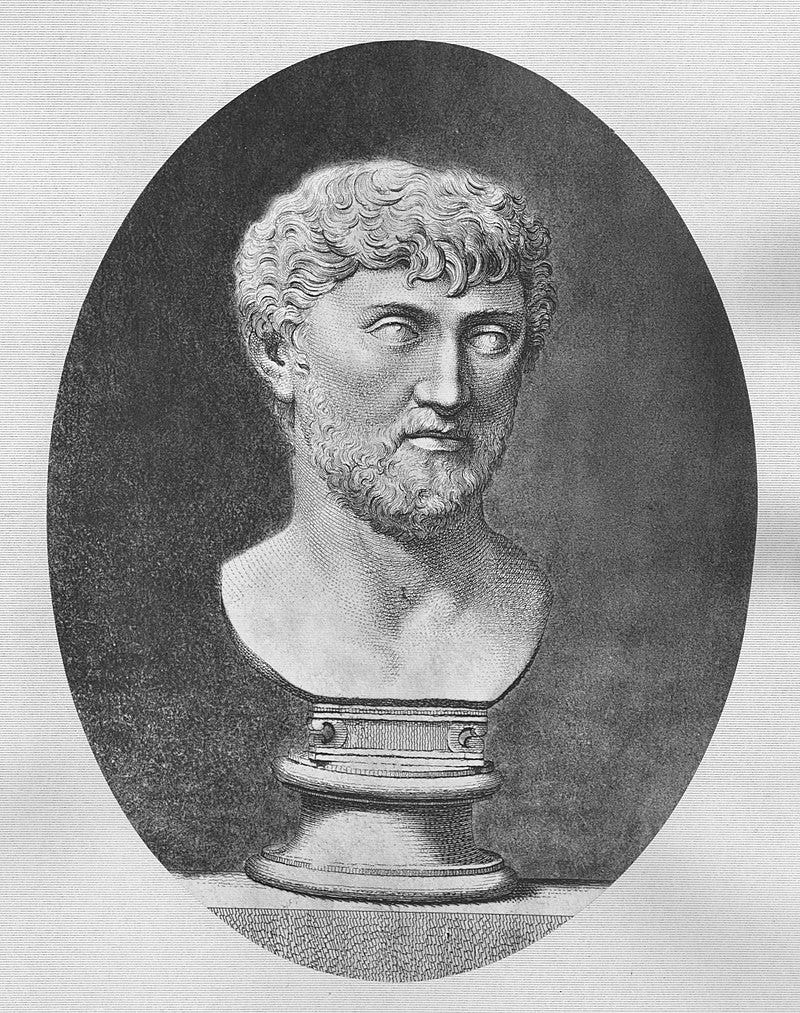# Reevaluating Lucretius: The Challenge of Rational Thought
Written on
The Aspirations of Lucretius
In his extensive poem De Rerum Natura (On the Nature of Things), Lucretius (circa 98–55 BCE) sets forth two primary objectives: to articulate the origins and workings of the universe through a rational lens and to replace the superstitions of religion with a more thoughtful philosophical approach.
While he seemingly addresses an individual named Memmius, it's likely that Lucretius aimed to reach a broader, more religiously inclined audience in Rome. To substantiate his arguments, he draws heavily on the atomistic theories proposed by Greek thinkers like Epicurus and Democritus. These philosophers posited that everything is made up of imperceptible atoms—minute particles that exist within a void, moving independently rather than under divine influence. These atoms frequently collide, generating new entities, with their characteristics dictated by the shape and nature of the atoms involved. For instance, solid objects are formed from hook-like atoms, while liquids consist of smoother particles.
With this foundation, Lucretius endeavors to explore various phenomena: the genesis of the world, the origins of life, the evolution of language, the development of human societies, the workings of the mind, the reasons for sexual reproduction, and the causes of weather patterns, among others.
As he asserts, divinity plays no role in these occurrences, emphasizing that:
When [people] feign
That gods have [e]stablished all things but for man,
They seem in all ways mightily to lapse
From reason’s truth.
He argues that the universe formed by chance and that attributing events like lightning strikes to divine will is irrational. If gods were responsible, why would they destroy their own temples? Lucretius advocates for seeking explanations grounded in the scientific understanding of his time.
Though some of Lucretius' ideas might amuse contemporary audiences, they mark a significant shift towards analytical thinking about the world. This intellectual evolution traces back to the Presocratics and eventually paved the way for the scientific method. The term "atom" itself is derived from thinkers like Lucretius, whose compassionate curiosity stands in stark contrast to later figures like Richard Dawkins, Christopher Hitchens, and Sam Harris.
Despite his significant contributions, Lucretius ultimately faced failure in his mission. He did not succeed in eradicating "foul religion." Merely fifty years after his passing, in a distant corner of what had become the Roman Empire, a child was born who would propagate a message that would be twisted to rationalize various atrocious acts.
Two millennia later, the human tendency to seek comforting religious explanations remains far more potent than the inclination to seek genuine understanding. During the recent pandemic, a considerable number of Americans not only perceived COVID as a divine punishment but also believed that their faith would protect them from it. Some even absurdly proclaimed Donald Trump as "the new Moses."
One can't help but ponder how different our reality could have been had more individuals embraced Lucretius’ perspective at the time. However, his work was lost for a millennium, only to be rediscovered in the fifteenth century. While his ideas contributed to the Renaissance, by then, the Church had already established a firm grip on European governance and, by extension, on the world.
Though the Church's hold has loosened somewhat over the ensuing centuries, at its most extreme, religion continues to make desperate attempts for power. Should it succeed, it would signify yet another monumental failure—this time, of our own accord.
Chapter 1: The Philosophical Foundations of Lucretius
In this chapter, we delve into the core ideas presented by Lucretius, examining how his theories challenge traditional religious beliefs.
Section 1.1: The Atomistic Worldview
In this section, we explore Lucretius' reliance on the atomistic theories of Epicurus and Democritus.
Subsection 1.1.1: The Nature of Atoms and Their Impact

Section 1.2: The Role of Religion in Society
This section discusses the impact of religion on human behavior and societal norms, contrasting it with Lucretius' rational approach.
Chapter 2: The Legacy of Lucretius
In this chapter, we reflect on the enduring influence of Lucretius' ideas and their relevance in contemporary discussions on science and religion.